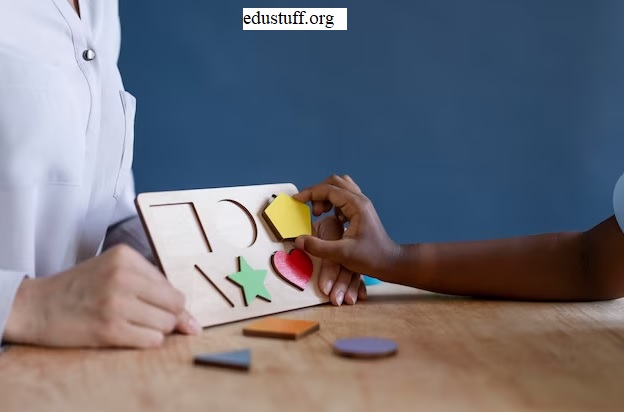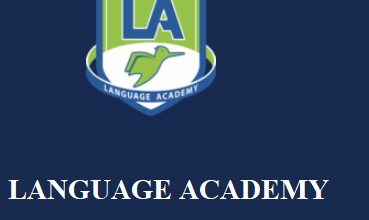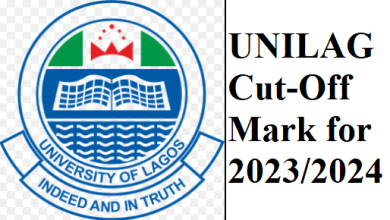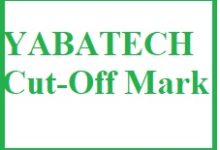
Montessori for Attention Deficit Hyperactivity Disorder
Montessori for Attention Deficit Hyperactivity Disorder
Attention Deficit Hyperactivity Disorder (ADHD) is a neurodevelopment disorder that affects individuals of all ages. It can pose significant challenges in academic settings, making education a complex endeavor for those diagnosed with Attention Deficit Hyperactivity Disorder. However, alternative educational approaches, such as Montessori education, offer a promising path for supporting children with Attention Deficit Hyperactivity Disorder. In this article, we will explore the principles of Montessori education and how they can benefit children with Attention Deficit Hyperactivity Disorder, along with strategies for implementing a Montessori-inspired approach tailored to their specific needs.
Understanding Attention Deficit Hyperactivity Disorder
Attention Deficit Hyperactivity Disorder (ADHD) is characterized by symptoms like inattention, impulsivity, and hyperactivity, which can significantly impact a child’s learning and behavior. Traditional approaches to managing Attention Deficit Hyperactivity Disorder often involve medication, behavioral therapy, and modifications to the learning environment. However, Montessori education takes a unique approach to address the challenges faced by children with Attention Deficit Hyperactivity Disorder.
Montessori Approach to Education
Montessori education, developed by Dr. Maria Montessori, emphasizes a child-centered approach that fosters independence, self-motivation, and hands-on learning. It is based on several key principles that align well with the needs of children with Attention Deficit Hyperactivity Disorder .
Individualized learning: Montessori education recognizes that each child is unique and has different learning styles and paces. In a Montessori classroom, teachers observe and assess each child’s abilities and interests, providing individualized guidance and adapting materials to suit the child’s needs. This approach allows children with ADHD to progress at their own pace and receive tailored support.
Hands-on materials and activities: Montessori classrooms are equipped with a wide range of specially designed materials that promote sensorial exploration and hands-on learning. Children with ADHD often thrive in environments that engage their senses and provide concrete experiences. The hands-on nature of Montessori materials helps them focus their attention, develop fine motor skills, and better comprehend abstract concepts.
Child-led learning: Montessori classrooms encourage children to choose their activities based on their interests and curiosities. This child-led approach aligns with the natural inclination of children with ADHD to explore topics that capture their attention. By allowing them to follow their interests, Montessori education fosters intrinsic motivation and a love for learning.
Freedom within limits: While Montessori classrooms provide freedom for children to make choices and explore, they also have clear boundaries and guidelines. This structured and orderly environment helps children with ADHD develop self-discipline and self-regulation skills. They learn to manage their impulses, follow routines, and work within the framework of the Montessori approach.
Benefits of Montessori for Attention Deficit Hyperactivity Disorder Children
The Montessori approach offers several benefits specifically tailored to the needs of children with ADHD.
Promoting self-discipline and focus: Children with ADHD often struggle with self-discipline and maintaining focus. The structured yet flexible Montessori environment helps them develop self-discipline and concentration skills. Through engaging in activities and individualized learning, they learn to regulate their behavior and stay on task. The freedom to choose their activities within a structured framework also helps them develop decision-making skills.
Allowing for movement and kinesthetic learning: Children with ADHD often require movement and struggle with sitting still for extended periods. Montessori classrooms recognize the importance of movement in learning. Children are encouraged to move freely within the classroom, allowing them to release excess energy and remain engaged in the learning process. The hands-on nature of Montessori materials also facilitates kinesthetic learning, where children can physically interact with the materials, enhancing their understanding and retention of information.
Developing executive functioning skills: Executive functioning skills, such as planning, organizing, and self-monitoring, are often underdeveloped in children with ADHD. Montessori education provides a framework that naturally cultivates these skills. Practical life activities, such as setting the table or arranging materials, require planning and organization. The structured environment and orderliness of the Montessori classroom support the development of executive functioning skills essential for academic success and everyday life.
Cultivating independence and self-esteem: Montessori education empowers children with ADHD to take responsibility for their own learning and daily tasks. By allowing children to make choices, take risks, and engage in self-correction, Montessori fosters independence, resilience, and a sense of accomplishment. This cultivation of independence contributes to the development of self-esteem and self-confidence in children with ADHD, who often face academic challenges and may experience lower self-esteem in traditional educational settings.
Nurturing social and emotional growth: Montessori classrooms provide a community-like atmosphere where children with ADHD can develop social skills, empathy, and emotional regulation. Mixed-age classrooms allow for peer interactions and the opportunity to learn from older children. Montessori education emphasizes respect, cooperation, and conflict resolution, fostering a positive social environment where children with ADHD can thrive.
Montessori Strategies for Attention Deficit Hyperactivity Disorder Children
Implementing Montessori strategies tailored to the needs of children with ADHD can further enhance their educational experience.
Structured environment and routine: Children with ADHD benefit from a predictable and structured environment. Montessori classrooms establish a consistent daily routine, providing children with a sense of security and stability. Additionally, clearly defining the learning areas within the classroom helps children understand the boundaries and transitions between different activities.
Engaging sensory activities: Children with ADHD may have difficulty sustaining attention. Incorporating sensory activities into the curriculum can help them maintain focus and engagement. Montessori materials often involve sensory experiences, such as touching different textures or smelling scents, allowing children to actively explore and learn through their senses.
Incorporating movement breaks: Recognizing the need for movement in children with ADHD, short breaks for physical activity can be incorporated into the daily schedule. Movement-based activities, such as stretching, yoga, or outdoor play, can help children release excess energy and refocus their attention for better concentration during academic tasks.
Providing clear expectations and guidelines: Children with ADHD thrive in environments with clear expectations and guidelines. Montessori teachers communicate behavioral expectations and work completion requirements explicitly, using visual cues and individualized reminders to support understanding and compliance. Clear guidelines help children with ADHD navigate their responsibilities and understand the boundaries within the Montessori classroom.
Encouraging self-regulation and self-correction: Montessori materials are designed to promote self-correction and self-assessment. Children with ADHD can benefit from the opportunity to identify and correct their own mistakes, fostering a sense of responsibility and self-regulation. Montessori teachers guide children in recognizing errors and provide opportunities for them to reflect on their work and make necessary adjustments.
Read Also:
Montessori Certification: Unlocking the Path to Educational Excellence
Montessori Activities for Home: Unleash Your Child’s Potential
Sarkari Result 2023: सरकारी रिजल्ट 2023
Is the Nitro Scholarship Legit? Unveiling the Facts
Collaboration between Montessori and Attention Deficit Hyperactivity Disorder Support
Collaboration between Montessori educators, parents, and professionals specializing in ADHD support is crucial for the success of children with Attention Deficit Hyperactivity Disorder in Montessori settings.
Communication between teachers and parents: Regular communication and sharing of insights between Montessori teachers and parents can provide a holistic view of the child’s progress and challenges. This collaboration allows for a consistent approach and facilitates the identification of strategies that work both at school and at home.
Individualized education plans (IEPs) in Montessori: Individualized education plans, commonly used in traditional educational settings, can be adapted to the Montessori approach. Collaborative efforts between teachers, parents, and professionals can help create IEPs that align with Montessori principles and cater to the unique needs of children with Attention Deficit Hyperactivity Disorder.
Adaptations and accommodations for Attention Deficit Hyperactivity Disorder students: Montessori educators can make adaptations and accommodations to meet the specific needs of children with Attention Deficit Hyperactivity Disorder. This may include modifying materials, providing additional support during challenging tasks, or implementing visual aids to aid focus and organization. Individualized approaches can ensure that children with Attention Deficit Hyperactivity Disorder receive the necessary support to thrive in a Montessori environment.
Utilizing Montessori principles in non-Montessori settings: While Montessori schools may not be accessible to all families, elements of the Montessori approach can still be incorporated into non-Montessori educational settings. Teachers can adopt child-centered practices, hands-on activities, and individualized learning strategies to create an environment that supports the unique needs of children with Attention Deficit Hyperactivity Disorder . Integrating Montessori principles in non-Montessori classrooms can help create a more inclusive and engaging educational experience.
Success Stories and Research
Numerous success stories and scientific studies highlight the positive impact of Montessori education on children with ADHD.
Case studies of ADHD children in Montessori: Real-life case studies of children with ADHD thriving in Montessori environments provide inspiring examples of how the approach can support their educational journey. These stories emphasize the progress made in self-regulation, focus, and academic achievement. Through individualized attention and tailored learning experiences in Montessori classrooms, children with ADHD can overcome challenges and reach their full potential.
Scientific studies on Montessori education and ADHD: Research studies examining the effectiveness of Montessori education for children with Attention Deficit Hyperactivity Disorder offer empirical evidence of its benefits. These studies explore the impact of the Montessori approach on attention, executive functioning, and overall well-being. They provide valuable insights into the positive outcomes associated with Montessori education for children with ADHD.
Testimonials from parents, teachers, and professionals: Gathering testimonials from parents, teachers, and professionals who have witnessed the positive effects of Montessori education on children with ADHD can provide additional insight and encouragement for families considering this educational path. These firsthand accounts highlight the growth, progress, and transformation experienced by children with ADHD in Montessori settings.
Challenges and Limitations
While Montessori education holds great potential for children with Attention Deficit Hyperactivity Disorder, there are also challenges and limitations to consider.
Addressing individual needs and challenges: Each child with Attention Deficit Hyperactivity Disorder has unique strengths and difficulties. Montessori educators need to be sensitive to individual needs, adapt their approach accordingly, and provide additional support when necessary. Flexibility in adapting the Montessori environment to address specific challenges is crucial for ensuring the success of children with Attention Deficit Hyperactivity Disorder.
Transitioning from Montessori to traditional schooling: Transitioning from a Montessori environment to a traditional school setting can be challenging for children with Attention Deficit Hyperactivity Disorder. The structured and child-centered nature of Montessori education may differ significantly from the traditional classroom setting, which often demands conformity and adherence to strict routines. Additional support and strategies may be necessary to ease the transition and help children with ADHD navigate new learning environments effectively.
Availability and accessibility of Montessori schools: Montessori schools may not be readily available or accessible to all families. Limited geographical options or financial constraints can pose barriers to accessing Montessori education for children with ADHD. In such cases, parents and educators can explore alternative ways to incorporate Montessori principles and strategies into the child’s educational journey, regardless of the schooling environment.
Conclusion
Montessori education offers a unique and valuable approach to supporting children with ADHD. By embracing individualized learning, hands-on materials, child-led exploration, and freedom within limits, Montessori classrooms provide an environment that nurtures self-discipline, executive functioning skills, independence, and social-emotional growth. Implementing tailored strategies and collaborating with Attention Deficit Hyperactivity Disorder support professionals and parents can further enhance the experience of children with Attention Deficit Hyperactivity Disorder in Montessori settings. Although challenges and limitations exist, the benefits of Montessori education for children with Attention Deficit Hyperactivity Disorder are compelling, offering a promising alternative for their educational journey. Consider exploring the Montessori approach to provide a supportive and enriching environment for children with Attention Deficit Hyperactivity Disorder






